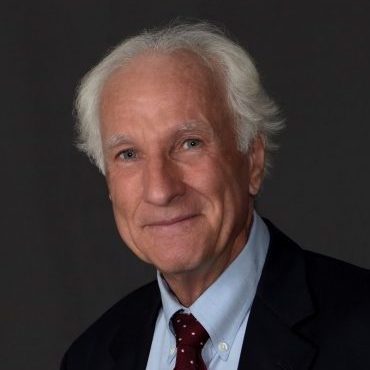“If the federal government can void the IP protections on technologies needed to fight a pandemic, there’s little to stop them from doing the same for [other technologies]…. Indeed, the U.N. Secretary General is already calling for denying patent protections to important energy technologies.”
 Shortly after taking office, the Biden Administration signed onto a waiver of the TRIPS Agreement, which requires member nations to have at least minimum standards for protecting intellectual property. That waiver allowed developing countries to copy our COVID-19 vaccines. Not surprisingly, no one wanted to copy the Chinese or Russian vaccines.
Shortly after taking office, the Biden Administration signed onto a waiver of the TRIPS Agreement, which requires member nations to have at least minimum standards for protecting intellectual property. That waiver allowed developing countries to copy our COVID-19 vaccines. Not surprisingly, no one wanted to copy the Chinese or Russian vaccines.
This was done under the false assumption that patent rights were preventing these nations from receiving desperately needed vaccines. The actual problem was the difficulty in ramping up production to meet worldwide demand, particularly for breakthrough vaccines using the new mRNA technology. With the planet now awash in unused vaccines, efforts are underway to extend the TRIPS waiver to our COVID diagnostics and therapeutics (terms that are poorly defined). By the way, China is considered a “developing country” that could use the waiver.
The U.S. Trade Representative asked the U.S. International Trade Commission to investigate whether or not such an extension is justified. That effort includes seeking public comments, which are due by Friday, May 5, 2023.
The Bayh-Dole Coalition, which I lead, just submitted to following letter to US ITC Secretary, Lisa Barton, laying out some of the many reasons why the extension would be a colossal blunder.
Dear Secretary Barton,
The Bayh-Dole Coalition appreciates the opportunity to provide important context regarding the U.S. International Trade Commission’s investigation into expanding the World Trade Organization’s Trade-Related Aspects of Intellectual Property Rights Agreement waiver.
The forthcoming TRIPS waiver decision will have a profound effect on the future of U.S. innovation; it will determine whether the United States remains at the forefront of cutting-edge research and development, or if we will relinquish our world-class medical and technological breakthroughs.
As a matter of context, the Bayh-Dole Coalition is a diverse group of innovation-oriented individuals and organizations dedicated to protecting one of the 20th century’s most significant pieces of legislation: the Bayh-Dole Act of 1980. This vital law has made possible a wide range of transformative technologies: From firefighting drones and quantum computing to cervical cancer tests and a children’s vaccine for Rotavirus. The list goes on.
The Bayh-Dole Act restored the incentive that fuels our nation’s innovative genius by reestablishing the longstanding American intellectual property principle; namely, that ownership follows inventorship. In the 1970s, scientific breakthroughs at universities and nonprofits — that benefited from federal funding — were largely gathering dust on shelves. The reason? The government arrogated ownership over patents stemming from inventors’ discoveries and licensed just five percent of them for commercialization.
Passage of the Bayh-Dole Act rectified that. The law enabled universities,nonprofit organizations, and small businesses to retain ownership of the patents on their inventions and license the rights to private-sector partners capable of turning their key scientific breakthroughs into viable consumer products. It also allowed our federal laboratories to effectively license their discoveries so they could be commercialized. These resulting products have benefited not only Americans, but people all over the world. But it should be remembered that in these partnerships the developing company assumes huge expenses and risks — making a bet that more often than not does not pay off. Our system works and is recognized as the most effective system in the world. It helped make the United States the world leader in innovation. However, while successful, this system is also delicately balanced.
On behalf of the Bayh-Dole Coalition, we are concerned that an expanded TRIPS waiver could fatally undermine this critical ecosystem.
The Lessons Learned from Covid-19
Covid-19 clearly demonstrates the beneficial outcomes generated by public-private partnerships operating within a framework of robust intellectual property rights. At the outset of the pandemic, life science companies, research universities, and federal laboratories answered the call to develop Covid-19 vaccines, treatments, and diagnostics in record time. They did that, in part, because Bayh-Dole and the U.S. patent system had been operating in the background flawlessly for many years. That provided confidence that the rules of the game were well established and that government could be trusted in high risk partnerships.
Bayh-Dole drove the foundational university research that underlies many Covid-19 technologies, including the mRNA vaccine platform pioneered at the University of Pennsylvania and the antiviral molnupiravir, which was developed at Emory University. Universities licensed this research to private sector companies with the necessary expertise and resources to bring lifesaving medical products to patients around the globe.
Suspending the IP rights that enabled these discoveries — and countless others — would destroy confidence in the government as a reliable partner. Such actions undermine incentives for companies to license scientific research from university researchers. The pipeline for promising, but risky, areas of medical innovation would dry up quickly.
The investment calculus is clear. Developing just one successful medicine costs around $2 billion and up to 10 years to develop, after accounting for the many failed research projects. Only 12 percent of those entering clinical trials ultimately receive FDA approval for patient use.
The government — largely through the National Institutes of Health — plays an important role in supporting university-led research that can catalyze medical discoveries. But it is private firms that shoulder the cost burden of developing the licensed discoveries and bringing new drugs to market. They spend approximately three times more on drug development than the NIH. In total, nearly 70 percent of medical and health R&D funding in the United States comes from private companies. Indeed, a new study found that of 18 Food and Drug approved therapies which cited NIH supported inventions, companies invested $44.3 billion in their development versus $0.67 billion which NIH spent in the underlying research.
No firm will license a university’s patented molecule platform and dedicate billions of dollars towards its development and commercialization, if the government could seize IP rights on a whim. Under this scenario, any chance of recouping their investments is eliminated — as is any possibility of directing additional capital toward new ventures. And this threat is particularly harmful to the small companies which license 70% of academic inventions and originate approximately 60% of new prescription drugs.
Such companies must rely on venture capital to survive. Investors know that they must wait years to recoup their investment, with a good chance that they will never see their money again. What investor would make such a bet with the additional risk that the government may give away the inventions the company is based on if that becomes politically expedient?
Why would we risk throttling the very system that made many Covid-19 vaccines, treatments, and diagnostics available in the first place?
The Truth of Supply and Demand
The TRIPS vaccine waiver, adopted by the World Trade Organization last year, was proposed as a way to address the low vaccination rates in developing countries and make Covid-19 shots more widely available. Yet there was no evidence of IP-related vaccine supply shortages. Indeed, we had a global glut that led to millions of shots being wasted.
The real problem was vaccine hesitancy and on-the-ground logistical challenges, all of which had nothing to do with IP protections.
The same is true for Covid-19 treatments and diagnostics. Indeed, according to a communication from Mexico and Switzerland to the WTO’s Council for TRIPS:
“Governments and NGOs have purchased 35 million COVID-19 treatments for LMIC for 2022 but have only been able to administer 10 million as of September this year. Global demand for tests has reduced and there is no evidence to suggest that supply is constrained relative to actual demand. Diagnostics companies working closely with WHO, and providing them with sample collection kits, have reported there is a high level of product surplus to order. This involves issues with logistics and distribution, which are not IP-related, but that need to be addressed.”
This wholly unnecessary suspension of a landmark global agreement — TRIPS — ignores the real sources of uptake challenges and will not increase access to Covid-19 products around the world. It will, however, impede the development of life-saving technologies across America’s IP-intensive sectors and jeopardize the U.S. economy and national security.
The Precedent Set for America’s Research Ecosystem
The United States currently leads the world in producing new medicines. A TRIPS waiver expansion would not only jeopardize this, but it would also enable competitors, such as Russia and China, to steal our technology and pilfer our research.
U.S. leaders know full well that public-private partnerships frequently drive technological innovation fueling economic growth. So, it is concerning that the U.S. government would consider sending this signal to American researchers and innovators — especially now, with the economy on the precipice of a recession.
Expanding the TRIPS waiver would set a dangerous precedent for all research-intensive industries. If the federal government can void the IP protections on technologies needed to fight a pandemic, there’s little to stop them from doing the same for others. Indeed, the U.N. Secretary General is already calling for denying patent protections to important energy technologies so they can be made freely available.
The proposed TRIPs waiver opens the door for the same strategy to be used for any other critical technologies our rivals wish to copy. That will have devastating consequences for American innovation across the board. Such a precedent would decimate innovation incentives and stifle lifesaving ventures. People here at home, and around the world, will suffer as a result.
The United States must reject efforts to undermine our innovative ecosystem by expanding the TRIPS waiver. Our ability to defeat the crises of today and tomorrow — for the benefit of people around the world — depends on it.
Thank you for your consideration.

![[IPWatchdog Logo]](https://ipwatchdog.com/wp-content/themes/IPWatchdog%20-%202023/assets/images/temp/logo-small@2x.png)

![[Advertisement]](https://ipwatchdog.com/wp-content/uploads/2024/04/Patent-Litigation-Masters-2024-sidebar-early-bird-ends-Apr-21-last-chance-700x500-1.jpg)

![[Advertisement]](https://ipwatchdog.com/wp-content/uploads/2021/12/WEBINAR-336-x-280-px.png)
![[Advertisement]](https://ipwatchdog.com/wp-content/uploads/2021/12/2021-Patent-Practice-on-Demand-recorded-Feb-2021-336-x-280.jpg)
![[Advertisement]](https://ipwatchdog.com/wp-content/uploads/2021/12/Ad-4-The-Invent-Patent-System™.png)







Join the Discussion
No comments yet.